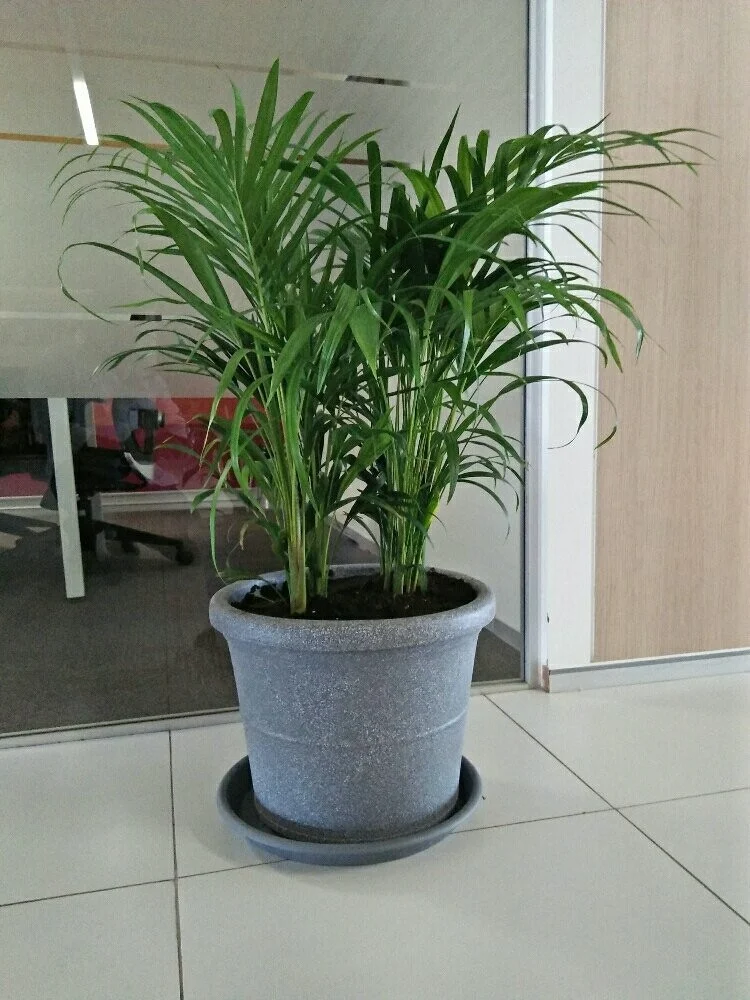Areca Palm (Dypsis lutescens)
Original price was: ₹399.00.₹299.00Current price is: ₹299.00.
OVERVIEW
Areca Palm (Dypsis lutescens)
Outdoor Areca Palm (Dypsis lutescens) – A Complete Guide
Local Indian Name: Supari Palm, Golden Cane Palm
Scientific Name: Dypsis lutescens
Family: Arecaceae
Category and Subcategory: Ornamental Palm, Perennial
Native Region: Madagascar
Introduction:
The Areca Palm (Dypsis lutescens), commonly grown in India as an ornamental plant, is a popular choice for outdoor and indoor landscaping. Known for its feathery, arching fronds and golden-yellow stems, it enhances gardens, parks, and open spaces with a tropical aesthetic.
Importance & Benefits:
-
Improves air quality by filtering toxins.
-
Provides natural shade and aesthetic appeal.
-
Acts as a noise and dust barrier in urban landscapes.
-
Used in landscaping to create privacy screens and hedges.
Description and Cultivation:
Areca Palm grows as a clumping, multi-stemmed plant with bright green fronds. It can reach up to 20 feet outdoors in favorable conditions. It thrives in warm, humid climates and requires moderate maintenance.
Varieties and Cultivars:
-
Dypsis lutescens ‘Golden Feather’ – More yellowish fronds.
-
Dypsis lutescens ‘Dwarf’ – A smaller, compact variety suitable for small gardens.
Location and Light:
Prefers bright, indirect sunlight but can tolerate partial shade. In outdoor settings, plant it in a spot with filtered sunlight to prevent scorching.
Soil Preparation:
Requires well-draining, fertile soil with a mix of loamy sand and organic compost. A slightly acidic to neutral pH (6.0-7.5) is ideal.
Planting:
-
Dig a hole twice the size of the root ball.
-
Ensure proper spacing (3–5 feet apart) for growth.
-
Cover the roots with soil and gently press to remove air pockets.
Watering:
-
Water regularly to maintain slightly moist soil.
-
Reduce watering during winter to avoid root rot.
Pruning:
-
Remove dried or yellowing fronds for better growth.
-
Trim excess suckers at the base to maintain a neat appearance.
Pest and Disease Management:
-
Common pests: Spider mites, mealybugs, and scale insects.
-
Fungal diseases may occur in waterlogged conditions; ensure good drainage.
-
Use neem oil or insecticidal soap for pest control.
Environmental Conditions:
-
Ideal temperature: 18°C – 30°C.
-
Cannot tolerate extreme frost; requires protection in cold regions.
-
Prefers high humidity for optimal growth.
Propagation:
-
Propagated through division of root clumps or seeds.
-
Seeds take longer to germinate (2-6 months).
Uses:
-
Landscaping in gardens, parks, and pathways.
-
Acts as a natural air purifier.
-
Used as a privacy hedge in residential and commercial areas.
Monetary Benefits:
-
High demand in the nursery and landscaping market.
-
Profitable for commercial growers supplying to hotels, offices, and residential gardens.
-
Mature plants can be sold at premium prices.
References:
-
Agricultural university recommendations and research papers.
-
Books on ornamental gardening and tropical palms.
RELATED PRODUCTS
REVIEWS





Reviews
There are no reviews yet.